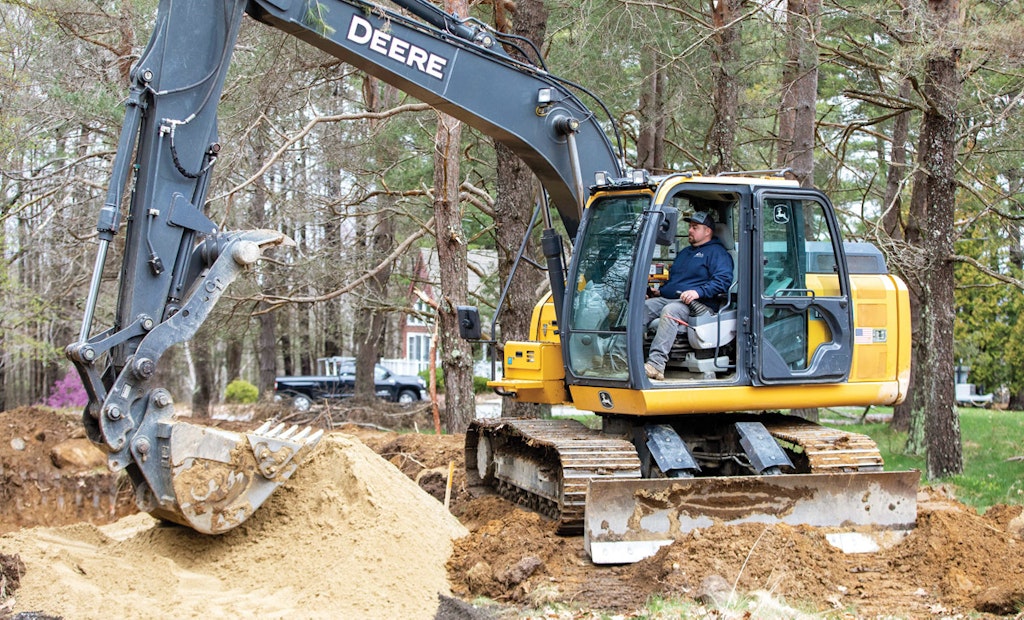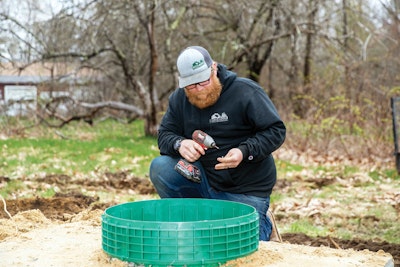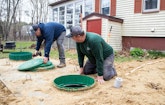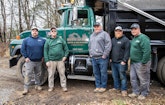
Luke Rotti is behind the controls of a John Deere 130G excavator during a septic system installation. (Photos by Scott Eisen)
Luke Rotti grew up around excavation equipment. His grandfather was an equipment operator. His father always had tractors and other machinery around. So after high school in 2007 Rotti went to an equipment trade school. Two years later he and his dad, Tim, launched a business doing...








